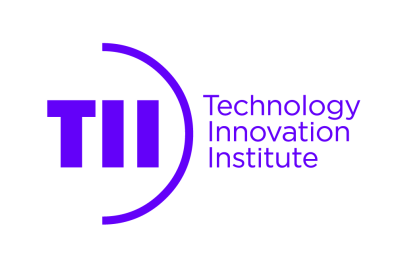- TII becomes a strategic member of the global organisation whose open-source standard allows for collaboration and breakthroughs in the computer chip industry, including the ability to design chips independently
Technology Innovation Institute (TII), the applied research pillar of Abu Dhabi’s Advanced Technology Research Council (ATRC), today announced that its Secure Systems Research Center (SSRC) has become a strategic member of RISC-V International, a non-profit organisation controlled by its members, which directs the future development and drives the adoption of the RISC-V free and open Instruction Set Architecture (ISA).
One of seven initial dedicated research Centers at TII, SSRC was established to create a global Center of excellence in the development of end-to-end security and resilience to protect cyber-physical and autonomous systems. With RISC-V’s open and free Instruction Set Architecture, SSRC can design computer chips independently. With RISC-V, computer chips can be built using its open-source standard, which is available to everyone, everywhere, unlike proprietary ISAs.
H.E. Faisal Al Bannai, Secretary General of ATRC, said: “By joining RISC-V, we are a step closer to a global chip standard which is not controlled by a few players in the industry. It’s important to have flexibility when it comes to computer chip design and not rely solely on proprietary designs and joining RISC-V makes that possible. We are proud to be a strategic member in RISC-V, and we are committed to partnering with leading global research Centers and industry organisations, to facilitate innovative technologies that will help protect vulnerable systems at the individual and commercial enterprise levels.”
Dr Shreekant (Ticky) Thakkar, Chief Researcher at SSRC, said: “It is important for the UAE to have a computing platform they can own. This allows us to become independent from organisations with proprietary architectures and enables us to introduce features we care about and control security and resilience, while mitigating the threats to our supply chain.”
As part of the RISC-V ecosystem, SSRC intends to contribute and collaborate with the community to develop security and resilience features in the processor and its platform.
“We will help drive security innovation on the RISC-V architecture to ensure E2E [end-to-end] security and resilience goals and our intent is to make this part of the RISC-V ecosystem, so it benefits all,” Dr Thakkar added.
“As we scale the Internet of Things to billions of sensors and edge devices physically connected to an autonomous digital infrastructure to enable Smart Cities, vehicles, amongst others, the potential security vulnerabilities grow exponentially, and thus require E2E security and resilience. SSRC drives open source and standards-based research to secure the communications between edge devices and Cloud infrastructure. Additionally, we hardened the device hardware and the system and application software to ensure no malware can penetrate it and steal information.”
Calista Redmond, CEO of RISC-V International, said: “The research that TII’s SSRC is bringing forth will help in further strengthening global advances in end-to-end security within the RISC-V architecture. We look forward to collaborating with the Center as a new member to ensure safety and enrich lives as we work to grow the adoption and implementation of RISC-V.”





